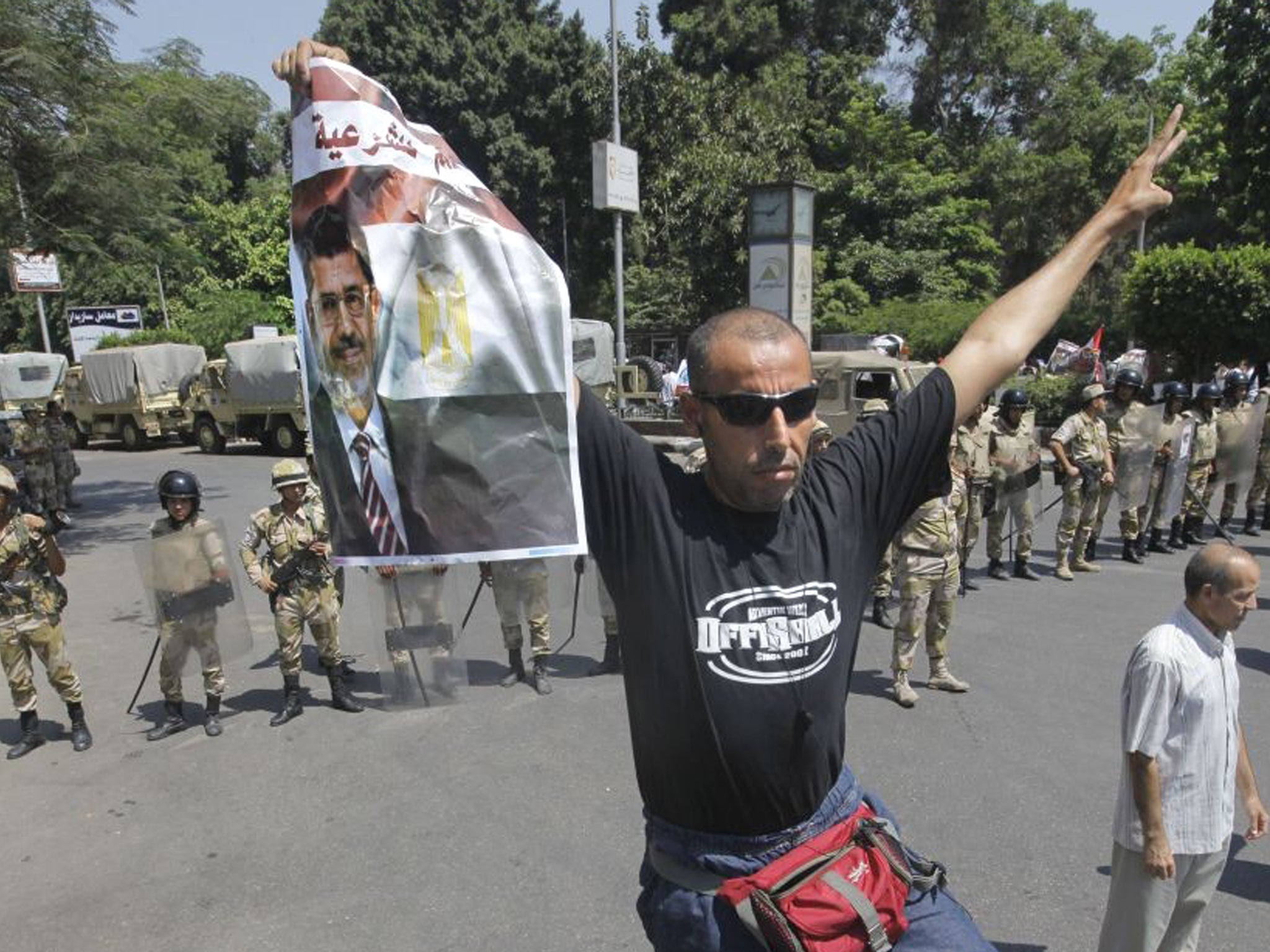Egypt unrest: Deposed president Mohamed Morsi could face long jail term if found guilty of colluding with foreign groups
Egypt’s interim rulers to pursue deposed president over his escape from prison

Deposed Egyptian President Mohamed Morsi is to be investigated over his escape from prison with 30 senior members of the Muslim Brotherhood in the lead-up to the uprising which forced his predecessor Hosni Mubarak from power.
The inquiry follows allegations that militant groups – the Palestinian Hamas and Lebanese Hezbollah – had helped by attacking the jail, allowing the inmates to be freed.
The move by Egypt’s new rulers signals their intention to legally pursue the president deposed by the military last week. It raises the possibility of him serving a long sentence if he is found guilty of colluding with foreign groups against the Egyptian state.
The announcement the case was being taken up by the chief state prosecutor came as the US, the UN and some western European states, including Germany, urged the country’s interim administration not to target and marginalise the Muslim Brotherhood. Many of the group’s hierarchy were detained by the security forces during the violence which followed the dismissal of the government.
Mr Morsi remains under arrest at the headquarters of the Republican Guards, it is believed, with his followers who had vowed to free him, encamped nearby. Fifty-one of them were killed in clashes with the army and police last Monday.
Mr Morsi’s wife, Najla Mahmoud, has spoken to him on the phone but does not know where he is being held.
The Obama administration has criticised the detentions and UN Secretary-General Ban Ki-moon has warned about the consequences of keeping Islamists away from the political process. The German government has asked for restrictions on Mr Morsi to be lifted and for international civil rights organisations to be given access to him and others being held.
However, Washington’s position was seen as ambiguous after State Department spokeswoman Jen Psaki appeared to criticise Mr Morsi as being undemocratic and the author of his own misfortune.
The Muslim Brotherhood said Ms Psaki’s comments were a graphic illustration of the hypocrisy of the US and showed that it had “backed the military coup all along”.
Ms Psaki said she had been “referring to all of the voices we have heard coming, the millions coming from Egypt, and how strongly they have voiced their views about his rule”.
The renewed investigation, under chief prosecutor Hesham Barkat, will be focused on the escape of Mr Morsi and his colleagues from the Wadi Natrun prison north of Cairo two days after they were arrested. The escapees included Essam e-Erian, who became a senior leader of the Brotherhood’s political wing, and Saad el-Katanti, later the speaker of parliament.
At a court hearing on Sunday, Judge Khaled Mahgoub named two members of the Brotherhood as conspirators in the attack on the prison along with Hamas and Hezbollah. He said Ibrahim Haggag and Sayyed Ayad had been involved “with those foreign elements who violated the sovereignty of the Egyptian state and its territory in addition to spreading chaos throughout the republic. This led to the release of thousands of prisoners who are a danger to society.”
At the time Mr Morsi said: “More than a hundred people made every effort to open up the prison for more than four hours. Once we were out we found the courtyard was empty, and we only saw the group that for a long time had been trying to break the door.”
Legal proceedings were set aside when Mr Morsi became president, but had never been dropped. The process restarted when arrest warrants were issued for the Brotherhood’s spiritual leader, Mohammed Badie, and nine others accused of inciting violence.
Last Friday, a fiery speech by Mr Badie, who at the time was thought to be detained, was followed by Brotherhood supporters clashing with security forces and opponents who had gathered at Tahrir Square. They also instigated, the authorities claim, the violence which led to the dozens being killed three days later.
Subscribe to Independent Premium to bookmark this article
Want to bookmark your favourite articles and stories to read or reference later? Start your Independent Premium subscription today.

Join our commenting forum
Join thought-provoking conversations, follow other Independent readers and see their replies